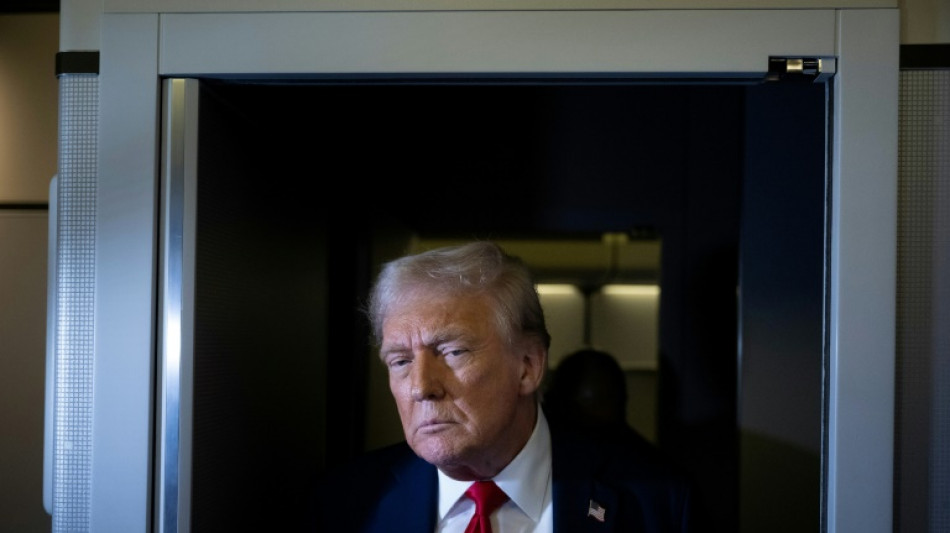
-
 Maresca non-committal over Sancho's future at Chelsea
Maresca non-committal over Sancho's future at Chelsea
-
WHO facing $2.5-bn gap even after slashing budget: report

-
 Real Madrid coach Ancelotti tells tax trial did not seek to defraud
Real Madrid coach Ancelotti tells tax trial did not seek to defraud
-
Chinese tourists pine for Taiwan's return as Beijing jets surround island
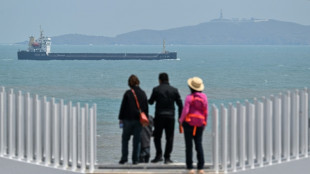
-
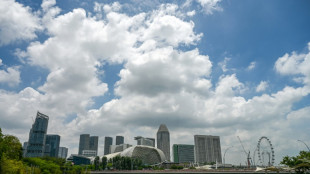 Singapore detains teenage boy allegedly planning to kill Muslims
Singapore detains teenage boy allegedly planning to kill Muslims
-
What is the 'Qatargate' scandal roiling Israel?

-
 AI coming for anime but Ghibli's Miyazaki irreplaceable, son says
AI coming for anime but Ghibli's Miyazaki irreplaceable, son says
-
Swedish insurer drops $160 mn Tesla stake over labour rights
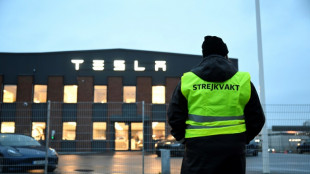
-
 Hunger returns to Gaza as Israeli blockade forces bakeries shut
Hunger returns to Gaza as Israeli blockade forces bakeries shut
-
Rubio heads to Europe as transatlantic tensions soar
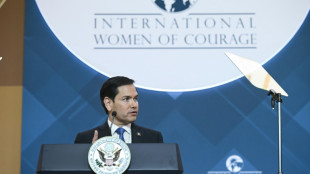
-
 Like 'living in hell': Quake-hit Mandalay monastery clears away rubble
Like 'living in hell': Quake-hit Mandalay monastery clears away rubble
-
'Give me a break': Trump tariffs threaten Japan auto sector
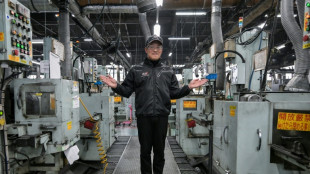
-
 US approves $5.58 bn fighter jet sale to Philippines
US approves $5.58 bn fighter jet sale to Philippines
-
Tsunoda embracing pressure of Red Bull debut at home Japanese GP

-
 'Outstanding' Hay shines as New Zealand seal Pakistan ODI series
'Outstanding' Hay shines as New Zealand seal Pakistan ODI series
-
El Salvador's Bukele flaunts 'iron fist' alliance with Trump

-
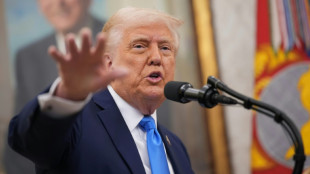 Stock markets mixed as uncertainty rules ahead of Trump tariffs
Stock markets mixed as uncertainty rules ahead of Trump tariffs
-
China probes for key target weak spots with 'paralysing' Taiwan drills

-
 'Top Gun' and Batman star Val Kilmer dies aged 65: New York Times
'Top Gun' and Batman star Val Kilmer dies aged 65: New York Times
-
US lawmakers seek to rename street for Hong Kong's jailed Jimmy Lai

-
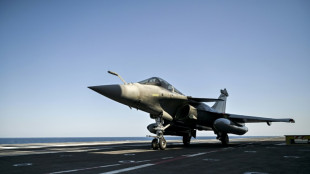 Greece to spend big on 'historic' military shake up
Greece to spend big on 'historic' military shake up
-
Trump faces first electoral setback after Wisconsin Supreme Court vote
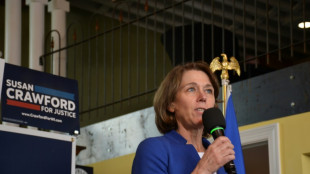
-
 Hay shines as New Zealand beat Pakistan for ODI series win
Hay shines as New Zealand beat Pakistan for ODI series win
-
Israel says expands Gaza offensive to seize 'large areas'

-
 Curry drops 52 as Warriors win, Jokic bags career-high 61 in Denver loss
Curry drops 52 as Warriors win, Jokic bags career-high 61 in Denver loss
-
South Korea mobilising 'all resources' for violence-free Yoon verdict
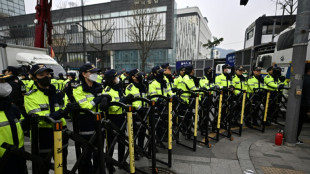
-
 Myanmar quake victim rescued after 5 days as aid calls grow
Myanmar quake victim rescued after 5 days as aid calls grow
-
Real Madrid coach Ancelotti tax fraud trial set to begin

-
 Warner showcases 'Superman' reboot, new DiCaprio film
Warner showcases 'Superman' reboot, new DiCaprio film
-
'Incredible' Curry scores 52 as Warriors down Grizzlies, Bucks edge Suns

-
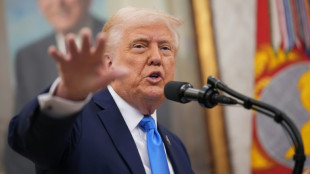 Asian markets edge up but uncertainty rules ahead of Trump tariffs
Asian markets edge up but uncertainty rules ahead of Trump tariffs
-
Nintendo's megahit Switch console: what to know
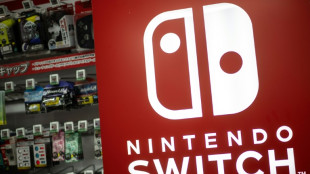
-
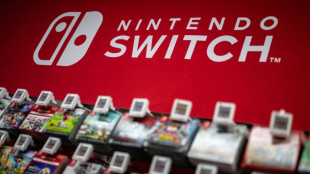 Nintendo to unveil upgrade to best-selling Switch console
Nintendo to unveil upgrade to best-selling Switch console
-
China practises hitting key ports, energy sites in Taiwan drills

-
 Oil, sand and speed: Saudi gearheads take on towering dunes
Oil, sand and speed: Saudi gearheads take on towering dunes
-
All eyes on Tsunoda at Japan GP after ruthless Red Bull move

-
 'Image whisperers' bring vision to the blind at Red Cross museum
'Image whisperers' bring vision to the blind at Red Cross museum
-
Hay shines as New Zealand make 292-8 in Pakistan ODI

-
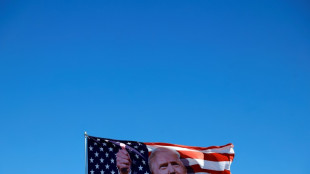 Other governments 'weaponising' Trump language to attack NGOs: rights groups
Other governments 'weaponising' Trump language to attack NGOs: rights groups
-
UK imposes online entry permit on European visitors

-
 How a Brazilian chief is staving off Amazon destruction
How a Brazilian chief is staving off Amazon destruction
-
Meme politics: White House embraces aggressive alt-right online culture
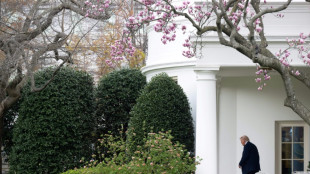
-
 China launches military drills in Taiwan Strait
China launches military drills in Taiwan Strait
-
US senator smashes record with 25-hour anti-Trump speech
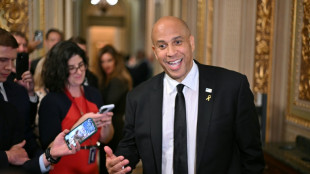
-
 Brazil binman finds newborn baby on garbage route
Brazil binman finds newborn baby on garbage route
-
US senator smashes record with marathon anti-Trump speech
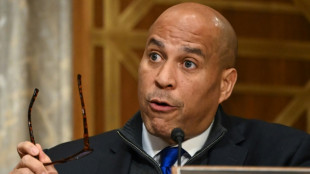
-
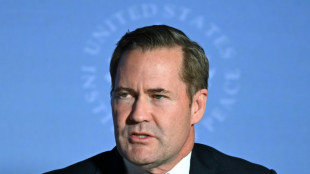 Trump advisor Waltz faces new pressure over Gmail usage
Trump advisor Waltz faces new pressure over Gmail usage
-
NHI Announces $63.5 Million Senior Housing Investment

-
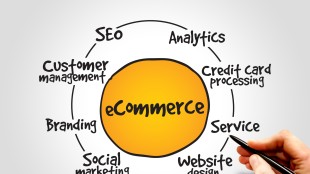 Miami Church Covers 100% of Uber Rides to Easter Service-Tips Included
Miami Church Covers 100% of Uber Rides to Easter Service-Tips Included
-
Niger junta frees ministers of overthrown government


Tariffs: Economic 'liberation' or straitjacket?
US President Donald Trump has made tariffs a cornerstone of his trade policy, insisting that they will revive American manufacturing while swelling government coffers.
Critics argue that the levies will boost inflation in the near term and weigh on growth, triggering a trade war that could inflict serious damage on the United States and the wider global economy.
Trump has imposed tariffs on major trading partners Canada, Mexico and China since returning to the presidency while slapping fresh duties on steel and aluminum imports, with more to come on what he dubbed "Liberation Day" this Wednesday.
- What are tariffs? -
Tariffs are fees that importing businesses pay for their purchases of foreign goods.
When tariffs are imposed, companies must choose between forking out more for foreign goods -- and potentially passing those costs on to consumers -- or looking for alternatives.
The levies bring in revenue for governments imposing them and are commonly used to protect local companies and workers from competition abroad.
The charges can make domestic goods more cost-competitive, encouraging buyers to select local producers instead.
- Arguments for -
Trump's position is that with tariffs on key imports, companies will move more manufacturing to the United States -- or buy US-made products -- to avoid additional fees.
A commonly-used example is the "chicken tax" of the 1960s, when president Lyndon Johnson pushed back against European tariffs on American poultry with a levy on imported trucks.
Today, a 25 percent US tariff remains on light trucks and this is a key reason that most pick-up trucks sold in the country are built in North America.
The White House says new tariffs could also bring in more than $6 trillion in federal revenue over the next decade -- about $600 billion per year -- although it has yet to release its full plans.
While US-based companies generally pay the tariffs, White House officials have argued that foreign sellers would absorb the hike by lowering their prices as they seek to do business with the world's biggest economy.
Supporters of Trump's trade policy also say that tariffs did not cause widespread inflation during his first White House term.
- Arguments against -
But economists warn that tariff hikes can bring economic pain to affected sectors, and Trump's stop-start approach to announcing levies has sent financial markets tumbling.
If companies are unable to absorb additional fees and foreign sellers decline to lower their prices, the burden of tariffs could flow to other firms or consumers.
Trump's 25 percent tariffs on autos and parts could cause the price of a typical car to surge by $5,000 to $10,000, said Wedbush analysts.
Even US automakers producing cars in the country use up to 50 percent of foreign auto parts, they said.
"It would take three years to move 10 percent of the auto supply chain to the US and cost hundreds of billions with much complexity and disruption," Wedbush added.
Nationwide chief economist Kathy Bostjancic estimates that recent tariffs on Chinese goods, alongside steel and aluminum imports, would raise construction material prices by up to nine percent.
Prices of appliances could also surge up to 15 percent, she said.
Trump's tariffs attract retaliation too, and countermeasures triggered more than $27 billion in US agricultural export losses from mid-2018 to late-2019.
The Tax Foundation said: "Based on actual revenue collections data, trade war tariffs have directly increased tax collections by $200 to $300 annually per US household, on average."
These estimates do not account for "lower incomes as tariffs shrink output, nor the loss in consumer choice" as buyers seek tariff-free alternatives, it added.
L.Davis--AMWN